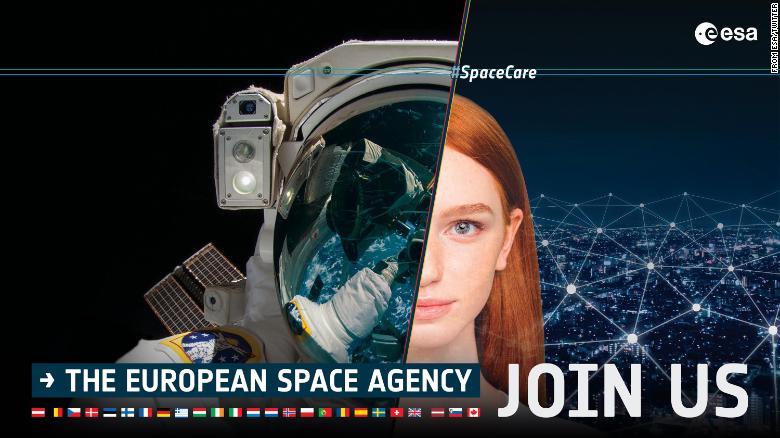The European Space Agency (ESA) is looking for new astronauts for the first time in 11 years.
Applications open on March 31, and women are encouraged to apply as the agency seeks “to expand gender diversity in our ranks,” according to a statement from the ESA published Monday.
“To go farther than we ever have before, we need to look wider than we ever have before,” said ESA director general Jan Wörner in the statement.
“This recruitment process is the first step and I look forward to watching the agency develop across all areas of space exploration and innovation, with our international partners, in the years to come.”
The agency is keen to receive applications from every part of society, according to David Parker, ESA director of human and robotic exploration.
“Diversity at ESA should not only address the origin, age, background or gender of our astronauts, but also perhaps physical disabilities,” said Parker in the statement. “To make this dream a reality, alongside the astronaut recruitment I am launching the Parastronaut Feasibility Project — an innovation whose time has come.”
The application period will run from March 31 to May 28 on the ESA Career website. Candidates will then be put through a six-stage selection process that is scheduled to end in October 2022, said the statement.
Applicants must be nationals of an ESA member state, be within the height range of 153 to 190 centimeters (five feet to six feet three inches) and speak and read English, according to the ESA website.
The agency requires a university degree, or equivalent, in natural sciences, engineering or medicine, and prefers applicants with at least three years of professional experience in a related field.
Applicants should be in good physical health and will preferably be 27-37 years of age, according to the website.
In October, the ESA signed a collaborative agreement with NASA aimed at facilitating sustainable exploration of the moon.
The two agencies will work together on the Artemis Gateway lunar outpost, which will act as a way station serving astronauts traveling from Earth before they reach the surface of the moon.
>>>>


